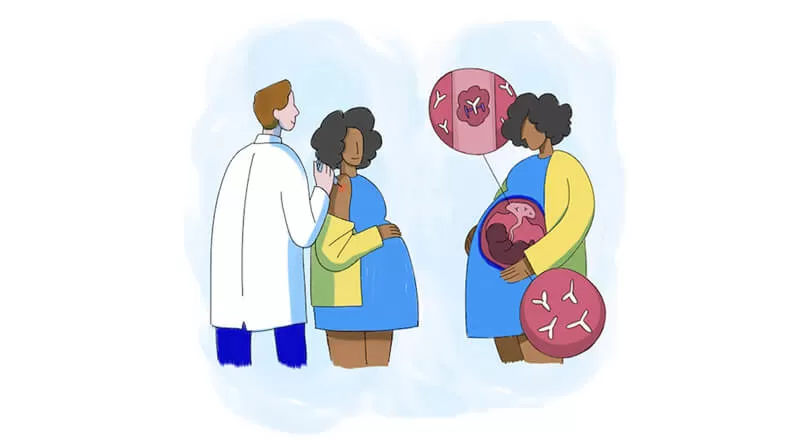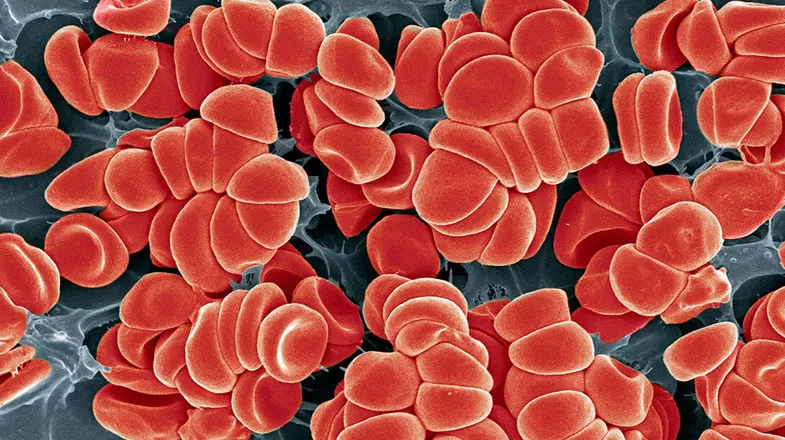Pediatrics Articles
Featured Articles
Read our latest stories on the people and scientific innovations making a difference in patients’ lives.

Science & Innovation
How Maternal Immunization Works and Why It's Important for Your Child
The instinct to protect a baby starts when it's in the womb. Some of the most common ways a mother does this is through receiving regular prenatal care, taking prenatal vitamins, and prioritizing a healthy diet and rest. A less frequently discussed, but equally crucial, step that mothers-to-be can take is getting themselves vaccinated during pregnancy. Even a brief look at the history of maternal immunization reveals that the antibodies provided by vaccination can be one of the greatest gifts a...

Science & Innovation
Maternal Immunization: Protecting Children from RSV and GBS
In the first few months of their lives, infants experience new sights, sounds, scents, and textures. During this time, they also make contact with new organisms. It takes up to three months for portions of infants’ still-developing immune systems to mature.1 During these early weeks and months, infants are too young to receive their first vaccines, leaving them vulnerable to developing serious infections.2Most pregnant people transmit antibodies to their developing fetuses naturally starting in...

Living & Wellbeing
Skipped Childhood Immunizations Could Lead to Resurgence of Vaccine-Preventable Diseases
Childhood vaccination rates dropped drastically during the COVID-19 pandemic, and it could potentially mean a resurgence of diseases we've long had under control. Approximately 66% of children aged 5 months in the United States were up to date for all CDC-recommended childhood vaccines in 2016-2019. By May 2020, that number declined to 49.7%. 1 A major driver of the downturn in vaccinations was canceled or skipped well-child visits. Shortly after the United States declared a national state of...

Living & Wellbeing
Addressing Disproportionate Childhood Vaccination
Vaccines for children should be available and accessible to all. And yet, despite decades of effort, significant disparities in childhood vaccination rates persist. In 2017, American Indian/Alaska Native children were 10% less likely to be fully immunized with CDC-recommended vaccines than non-Hispanic white children.1 Just 66.5% of Black children aged 19 to 35 months were fully immunized, compared to 71.5% of white children.2 Immunization rates for Asian-American, Hispanic, and non-Hispanic...

Adolescence – A Time for Vaccinations
Adolescent Health Concerns For many people in the U.S., adolescence is one of the healthiest times of life. Most parents hope to keep it that way for their young children and teenagers as they progress to young adulthood. The World Health Organization widely defines adolescence as a period of time that begins at the start of puberty and ends when an adult identity and behavior are accepted. Though the timing and extent of these changes may vary among young people, they usually happen from the...

Getting the Facts About Some Common Pregnancy Complications
Many mothers envision having an uneventful pregnancy with little to no symptoms and the delivery of a healthy, full-term baby. Thankfully, most pregnancies and deliveries go on without a hitch. However, for some expectant mothers, health problems do occur. The good news is that only 8% of pregnancies involve complications. These complications can involve the mother, baby or both. Even women who were healthy prior to getting pregnant can have complications. Though not all complications can be...

Get the Facts About Vaccinations
To listen to a podcast on the story of the first vaccine, click here: https://www.pfizer.com/news/features/podcasts/the-antigen Vaccinations are recommended by doctors and scientists because of their proven benefits. Specifically, for children receiving them, vaccinations have been shown to prevent about 20 million illnesses and more than 40,000 deaths at a savings of $70 billion. Despite the evidence supporting the benefits of vaccines, a number of myths surround their use. Belief in these...

Living With Hemophilia
There are currently around 20,000 males in the United States who are living with hemophilia. (Women, who are genetic carriers of the disease, very rarely experience any of the condition’s symptoms.) "Hemophilia comes in several shades of gray, and not everyone who has the condition will be affected in the same way,” says Bartholomew J. Tortella, MD, Medical Director on Pfizer’s Hemophilia team. That said, most boys and men with hemophilia, and those caring for them, will face similar...

Tips to Eating Well
Download the Tips to Eating Well Checklist PDF The foods you eat can affect your health, so it’s important to make smart food choices. Healthy eating will help you control: Weight Blood pressure Blood sugar (if you have diabetes)

Hemophilia Q&A
Q: What is hemophilia? A: Hemophilia is a blood disorder that primarily affects males. People who have hemophilia tend to bleed for longer periods of time following an injury or surgery. This happens because they have little, or even none, of a protein called clotting factor. Clotting factors help your blood form clots, which play an important role in stopping bleeding. There are many of these clotting factors in the body that are needed for the blood to clot properly. People with...

Taking Medication During Pregnancy
The reality is that some women get sick and are diagnosed with serious diseases during pregnancy. Or they may have a chronic illness that needs to be managed while pregnant. Sometimes making the decision whether to take medication during pregnancy is not so easy. It is difficult to study new medications in pregnant women, and even more difficult to assess the effects of medication on the developing fetus. Pregnant women are considered a vulnerable group by regulatory agencies and ethics...

Clinical Trials for Children – Why Are They So Important?
When doctors prescribe a medication, they may rely on the drug label (or US prescribing information) to help them understand how to use it safely and successfully. This prescribing information document comes along with a prescription medication and provides detailed information which comes directly from research studies and clinical trials: How the medication works in the body What specifically the medication has been approved to treat in the US (e.g., high blood pressure, high cholesterol...
Media Resources & Contact Information
Anyone may view our press releases, press statements, and press kits. However, to ensure that customers, investors, and others receive the appropriate attention, Pfizer Media Contacts may only respond to calls and emails from professional journalists.
